Uptown home expansions impact community
Lifelong Carrollton neighborhood resident Sallie Davis saw an unusual-looking building permit on the front door of a house on the other side of her street a couple years ago. She later found that the permit was being used to expand the four-bedroom duplex to a nine-bedroom house.
Other Uptown residents have seen this conversion happen on their own blocks where developers are expanding homes to accommodate renting college students. Doubles to dorms advocate Keith Hardie said the “most insidious” effect of the homes’ expansions is the disappearance of long-term residents.
“Our friends and neighbors move out because they don’t want to fight for parking spaces, and they don’t like the noise and blight that so often accompany student housing,” Hardie said.
District A Councilman Joe Giarusso said this led many Uptowners to start the Stop Doubles to Dorms movement in February 2019.
Hardie said a shotgun double has, at best, two parking spaces streetside without a driveway. He said if a house has eight or 10 bedrooms, and all student tenants have cars, one house can take up every parking space on the street.
Loyola psychology sophomore and New Orleans resident Electra Pelias said these changes impact Tulane and Loyola students too. Pelias said it is difficult finding housing that is affordable as a college student.
Loyola history and political science senior Jacquelynn France said she and her roommates moved into a two-unit, six-bedroom home because it was more affordable.
While the near $1,900 she pays collectively with her two roommates is too much for any one of them on their own, the $600 a month she contributes is much more manageable. “We are very lucky,” she said.
While these multi-unit homes may not be suitable for a family, they are all some students can afford, France said.
France said the first two years of on-campus housing she paid for were even more expensive than what she pays now. College Factual said the average housing cost for on-campus students at Loyola in 2020 was more than $7,000. Getting a meal plan is also a requirement for on-campus students, which College Factual said can cost up to $5,500. France said she spends less than that on food now that she lives off-campus.
Hardie said the problems with doubles to dorm conversions are also the fault of the universities.
When Pelias applied for on-campus housing the Fall 2021 semester, she was waitlisted before getting a spot. She said she knew some students who were forced to find places to live off-campus, and others that didn’t apply for fear Loyola might not have the space for them.
This comes as Loyola welcomes its largest incoming class in its history. Loyola’s website said there were nearly 1,000 freshman admitted, a 25% increase from last year’s numbers.
Rachel Hoorman, a university spokesperson, said that Loyola was able to reduce the number of rooms reserved for quarantine this year to expand capacity as much as safely possible. Despite this, Hoorman said about 40 students were denied housing this semester due to lack of space.
Tulane and Loyola are both trying to address the issue of housing availability on their campuses.
Loyola said there have been plans to build a new residence hall on the main campus since last year, though details are yet to be released.
Tulane is planning to build a residence hall where its old dining hall was located. The university website said the project will be complete by the fall of 2022 and will increase Tulane’s housing availability by nearly 700 beds.
Even as the universities have been making plans to expand on-campus housing, Giarusso said there were consistently complaints from permanent residents about these developments that spurred him and the council to take action.
That is when the City Council passed a motion in March 2020 that conducted a study to determine appropriate parameters for Uptown university area parking requirements in an attempt to make stricter parking regulations.
Another piece of legislation was passed restricting university area parking Oct. 7. The plan requires all new construction Uptown to add an off-street parking space per room above four bedrooms.
Giarusso said there was an “overwhelmingly positive” response from residents to the new regulations.
Even after the creation of the parking overlay, Hardie believes there will still need to be new rules put in place to deal with these issues.
“The developers will continue to work to find ways to increase profits – mainly by increasing the number of bedrooms – and it is likely that the rules will have to be amended to address their new strategies,” Hardie said.

Jackie Galli is proud to be one of the editors in chief at The Maroon this year. She is a senior mass communication major with a concentration in journalism,...

Kat Kelsey is a senior graphic design major and art history minor from Fort Lauderdale, Florida. She has contributed illustrations to the paper for the...


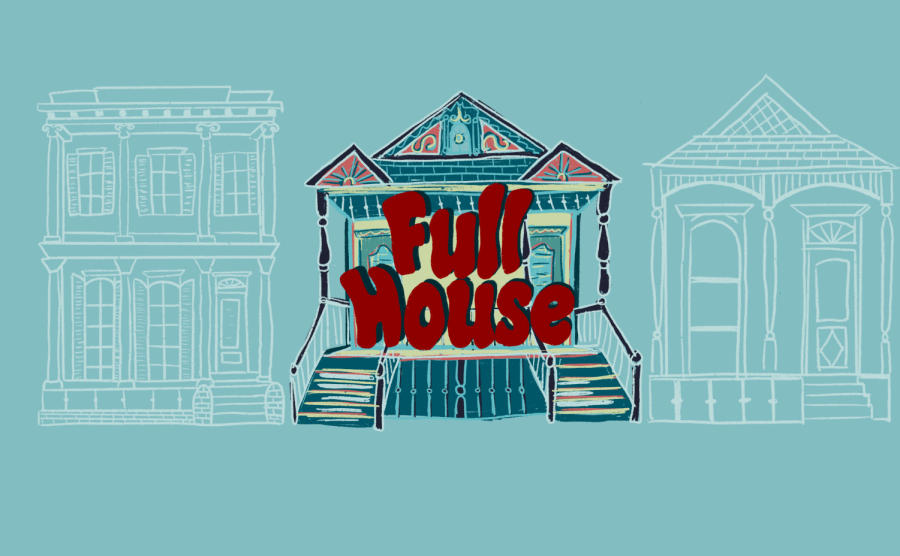


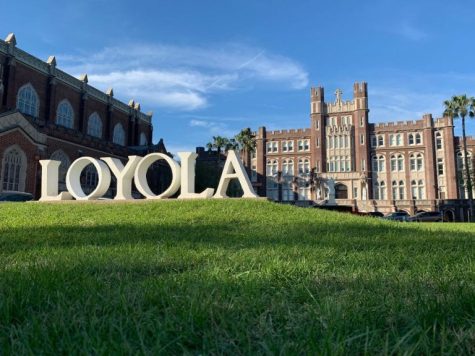

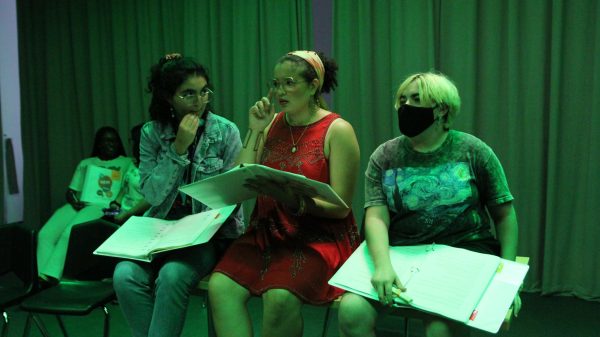

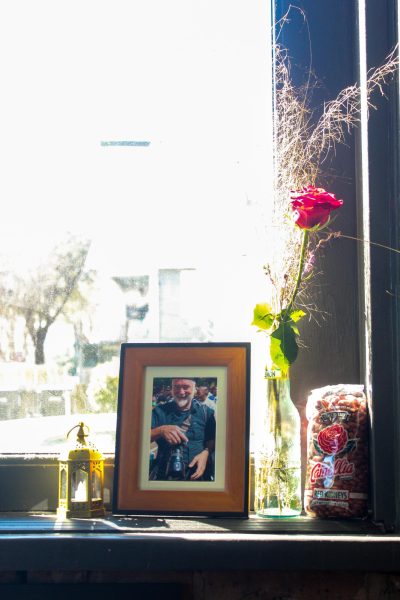
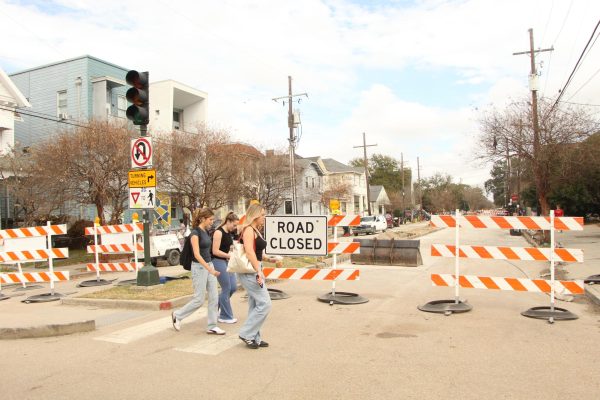
Dorothy Maher • Aug 21, 2022 at 7:15 am
Decades ago my “sister” and her husband started their slum landlord careers this way..
Thank God some people now care about this issue…
jeff stevens • Nov 2, 2021 at 3:21 pm
The problem is the neighborhood associations has taken control and our councilman Giarrusso listens to them exclusively. We have had 2 years to come up with some good solutions and all we have to show for it is legislation that was based upon knee-jerk reactions by a handful of people Some with personal vendettas. We have no solution for the problem and once again its the developers that come out ahead and the neighborhood bears the burden.
Susan Johnson • Nov 3, 2021 at 8:24 pm
“Jeff Stevens,”
I’ve never seen your name on public comments submitted to the city agencies on any doubles-to-dorms issues or indeed in any forum besides social media, where you’re always carping at (i.e., dissing) the neighbors. So I have to assume you’re a friend to the developers. At any rate it’s duplicitous of you (i.e., phony) to talk in terms of “we” and “our.”
What is your stake in this, anyway?
But maybe I missed your public comments because “Jeff Stevens” is not your real name. Is it? Mine is Dudley P. Aldershot and the Maroon still hasn’t corrected its caption on 631 Broadway.
Susan Johnson
http://www.townofcarrolltonwatch.org
jeff stevens • Nov 8, 2021 at 11:31 am
I own a house in Carrollton and pay taxes here. What is yours?
jeff stevens • Nov 8, 2021 at 12:00 pm
Why are unwilling to address the issues that I raise? I am a property owner, resident of 20+yrs (Family 70+ years) and a taxpayer yet you ignore my comments and make personal attacks instead? You don’t seem to respect the Carrollton residents that disagree with the recent rule changes or more accurately, who disagree with you, your agenda and methods. When I say “we” and “our” that is who I am referring to. If you are really a friend to this neighborhood then you would respect those voices and appreciate their diversity.
Susan Johnson • Nov 9, 2021 at 12:08 am
You speak in generalities and you don’t make a positive statement of your views. Instead, you’re continually taking pot-shots from behind a pseudonym like an ordinary troll. Anyone who disagrees with “stop doubles-to-dorms” or Joe Giarrusso or any other point of argument is welcome to submit comments to public agencies and take an opposing stand. And what is so sacrosanct about any of the neighborhood associations? If you don’t like them, start your own. Build your own platform. Formulate your own ideas and present them in a public forum like others do. You’re not raising any constructive issues. You’re just reacting.
People are selling their homes to get away from the developments. That’s what worries me.
jeff stevens • Nov 10, 2021 at 6:22 pm
So despite being an actual resident of this neighborhood my opinions, concerns and questions are just not worthy of your attention? Like I said, zero respect for those that disagree with you.
And I do believe you attacked me first when I commented in this forum. I wasn’t even talking to you.
For the record I am against the D2Ds. I always have been. I just don’t agree with the solution because it isn’t one.
But answer the question. What is your stake in all this?
Dudley P. Aldershot • Oct 31, 2021 at 9:48 pm
Hey, Maroon. The house in your photo is 631 Broadway, not Burthe.
Marie Gould • Oct 29, 2021 at 2:08 pm
I live in the area. The large number of college students in the neighborhood create a lot of noise and litter. When school closes I pick up all the litter on the block and it stays clean until students return. If the developers create enough off street parking for the increased number of students in the neighborhood, yards would be paved, taking green space away and adding concrete that increases flooding problems.
LF • Oct 29, 2021 at 11:45 am
We sold our beautiful home because of the development built (hastily) next door to us. A 10 bedroom dorm house does not belong in a residential neighborhood! If anyone is being fooled into believing only 10 students really live in any of these, they’re being very naive.
Deb lombard • Oct 29, 2021 at 2:31 pm
Even 10 cars to one house damages the value of every house in that “Block” and All adjacent blocks where the neighbors from the “Block” now need to park as displaced from their former spots before the added bedrooms. Also, a room doesnt need a closet or be labeled a bedroom to house a student. So the real issue is mandating each university to reduce their # of students that live off campus.
jason • Nov 2, 2021 at 3:06 pm
Most students don’t have cars so it is unfair and inaccurate to say 10 bedrooms equals 10 cars.
jeff stevens • Nov 2, 2021 at 3:49 pm
Statistically most students don’t have cars. So 10 bedrooms does not mean 10 cars.
Susan Johnson • Nov 3, 2021 at 8:26 pm
Please say where you got your statistics.
jeff stevens • Nov 8, 2021 at 5:52 pm
CPC Report, US News & World Report (46% National Average), common sense, 20+ years living in the neighborhood, 4 years attending Loyola and driving Uber in the area for 4 years. But I am willing to be wrong so what you got?